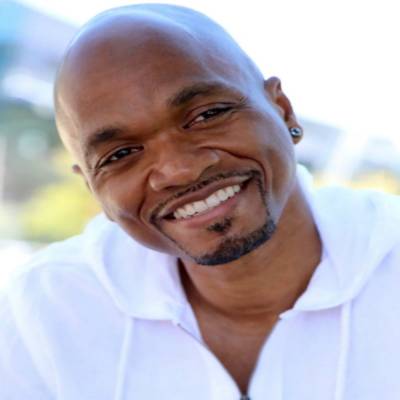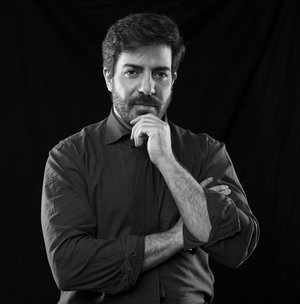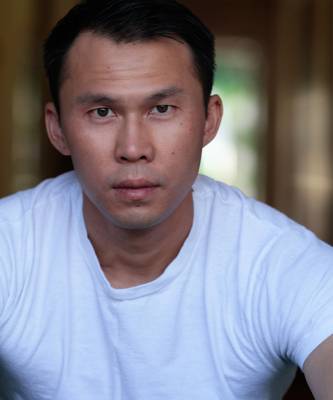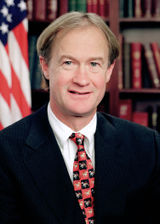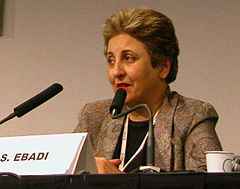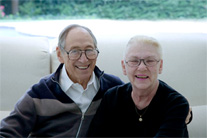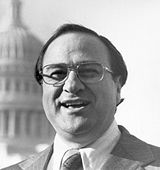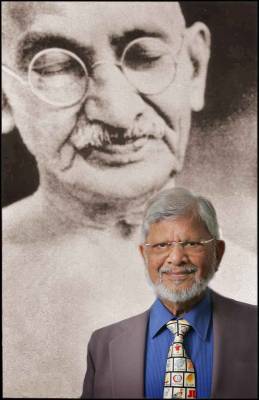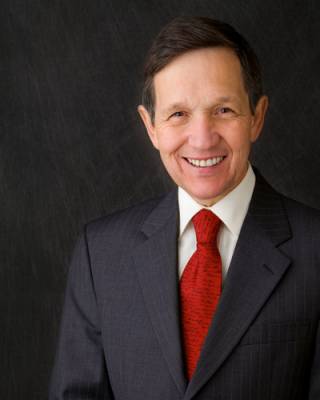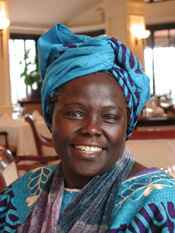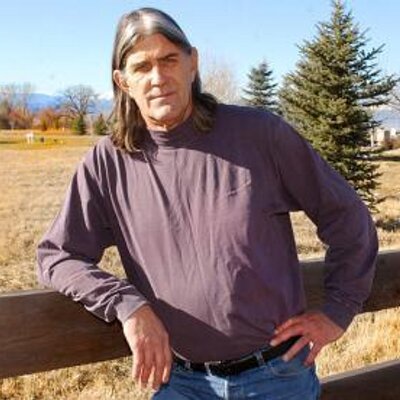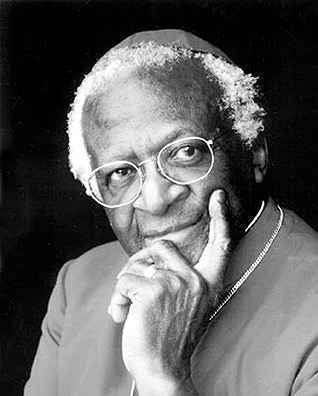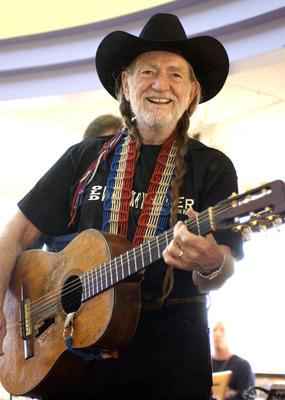Headlined Guests
Headlined Guests that have appeared on BBS Radio TV
BETH BELL
Beth Bell is known as a Flower Whisperer, International entrepreneur, author and Radio Show Host. After 15+ years in her corporate career she left her high heels, corporate suits, and luxury high rise living for flip flops, helmet hair and the rice fields of Bali to pursue her mission to be “Pollinating the Planet with Love”.
Beth founded Blossom B.L.I.S.S. Bali, an empowering line of products including inspirational jewelry, flower affirmation cards and flower photography. Her love of observing and photographing flowers provides her a deep connection to mother nature that’s lead her to channel messages from the flowers. She’s captured the 4 life lessons she’s learned from flowers that provide simple, yet profound insights. Her book “Flower Power 4 Pure Love” was recently launched in Australia just in time for spring and is available on Amazon.
On the Beth Bell Radio Show she interviews guests living their passions to empower listeners to know pure love & purpose. Beth along with her guests share how they took intuitive risks and big jumps to get to where they are today. She believes through sharing personal life journey lessons and pearls of wisdom we gain along the way, we empower others to live their passions and life’s purpose.
Beth currently resides in Bali, Indonesia and travels globally sharing the life lessons she’s learned from flowers along with her personal life journey lessons and pearls of wisdom.
JESSE CAMPBELL
An International recording artist who sings heart-felt Universal music with soul. Born in Chicago, IL, Jesse Campbell’s voice emerged at the age of sixteen when he began leading songs with the church choir where his father, Bishop W.J. Campbell is Pastor.
Jesse broke out of his gospel roots in 1994, signing a recording contract with Underworld/Capitol Records. During this time, he recorded and released his first hit single, When You Cry, I Cry, from his debut album, Never Let You Go. He also recorded the smash hit, Where Is The Love, from the movie soundtrack Dead Presidents, which sold over 500,000 copies, and was certified gold.
Jesse has performed for many of the world’s renowned speakers and has performed both LIVE and in-studio with some of the most successful recording artist of the music industry. During season two of NBC’s “The Voice”, the stars aligned and Jesse was invited to join the hit reality show, giving the world a glimpse of his profound vocal talent. His story and live performances were featured on commercials, movie screens and other promotions. After wooing the hearts and mutual respect of Industry peers / celebrity coaches Christina Aguilera, Adam Levine, Cee Lo Green and Blake Shelton, along with 40 million viewers, Jesse’s fan base drastically increased and continues to grow worldwide via social media and jaw dropping live performances. Since then, Jesse has performed as the guest celebrity on “The Voice” Vietnam, and has worked in partnership with many companies and big name corporations including McDonalds, Apple, Spirit & Cellardoor Winery.
During Jesse’s career he has also made many personal appearances and live performances on national television shows including: The Tonight Show, WGN Morning Show, Showtime at the Apollo, BET’s Video Soul, and Soul Train. With Jesse’s vocal talent he has the pleasure of working alongside many highly respected recording artist’s including Jesse J, Mary J Blige, Christina Aguilera, The Winans, Andre Crouch and The Hawkins. Jesse has and continues to travel the world sharing his vocal prowess in South and Central Americas, UK, Eastern Europe, South Africa, Asia and many more to come.
Jesse is currently in the studio working on his next Album of World music you can feel. Jesse is one of today’s most gifted singers, whose unique, captivating vocals command attention from the first note. Jesse’s charisma, unique gift of reaching others and humble roots inspire people from all walks of life, and his amazing voice continues to catapult him to greatness.
MURRAY HIDARY
Murray Hidary is a multi-disciplinary, creative visionary and tech pioneer who started his first company at 22 years old, after studying Music and Composition at NYU.
Murray’s success as an early Internet entrepreneur, starting in 1994, sprung from his innate sense that creating networks and platforms for connection amongst people could both elevate productivity and consciousness.
This purpose-driven approach to the Internet’s power garnered Murray considerable business success, including EarthWeb’s groundbreaking IPO in 1998, which was the third largest single day share gain in NASDAQ history at the time, and the growth and sale of several more companies including career site Dice and expert network Vista Research. In addition to his robust career in tech, Murray is an acclaimed photographer, composer, and musician with a voracious appetite for ongoing learning and adventure.
Murray has studied theoretical physics extensively; trained in the study of Aikido and the Shakuhachi (the Japanese bamboo flute) and its ancient music tradition of the Zen monks with some of the greatest teachers. Additionally, he journeyed the globe mindfully connecting with the fundamental elements that surround us. In an effort to gain deeper understanding of himself and of nature, Murray sought out experiences to simultaneously challenge and test himself physically and mentally as well as give him perspectives of natures core elements including water, rock and wind.
Climbing Mont Blanc, the Grand Teton and Mount Cook as well as countless technical rock climbing routes gave him and intimacy with the earth. Scuba-diving the Great Barrier Reef extensively and whitewater kayaking rivers allowed to ‘become’ the water. Paragliding the high mountains from Colorado to Mexico allowed him to feel and connect with the wind and understand flight. These pursuits, in addition to several marathon runs allowed him to push his mind and body connection, see what he was made of and learn how to confront, process and act in the face of fear.
Murray’s work, quest and ongoing studies remain closely entwined: he’s out to ignite transformation, to connect the seemingly disparate elements of this world, and to live in a constant dance of unfolding the hidden universe. At age 30, Murray wrote and recorded his first symphony in St. Petersburg, Russia. Moved by direct experiences that his curiosity towards deeper levels of consciousness created through music that began with his study of zazenor moving meditation with the Japanese Zen flute, Murray translated that process to the piano and began to lay the groundwork for what would eventually become MindTravel. The essence of MindTravel started as a personal practice for Murray many years ago, bringing music and visual art together, blurring the lines and pushing the edges of these mediums for direct expressions of deeper consciousness.
In bringing MindTravel to a broad audience, Murray’s goal is to create the space for people to have a powerful journey, which is at once provocative and reflective, healing and transcendent. Murray’s musical performances are a fusion of contemporary classical style, and contain a highly original expression of the avant garde, presented to audiences in concert halls, beaches, parks and beyond. For Murray, music communicates a profound coalescence of language and concept – a bridge connecting that which is hidden with that which is manifest.
Murray is involved with several philanthropic causes. He is the board chairman of the new music string quartet ETHEL, resides on the boards of UCLA’s Center for the Art of Performance and Four Way Books, a publisher of poetry and short fiction by emerging and established writers. He is also a member of the New York University Dean’s Advisory Council and is the recipient of the NYU Distinguished Service Award where he has given the commencement speech at Madison Square Garden.
Murray is currently touring MindTravel, composing new work, hiking and meditating in beautiful places.
THOM TRAN
Los Angeles based comedian, musician, and U.S. military veteran and advocate Thom Tran started his career as a standup comic after a combat injury ended his career as a soldier.
Thom enlisted in the United States Army at 18 years old before he even finished high school. After joining the Army, Thom spent his entire career as a Communications Sergeant as well as a Civil Affairs Sergeant within the United States Army’s Special Operations Community. In 2003, four days after crossing the border into Iraq, Thom was wounded during a firefight when a sniper’s bullet found it’s way to the back of his skull. He bandaged himself up, continued the mission, and finished his 12 month tour in Iraq. But his wounds would eventually bring an end to his military life. After redeploying to the United States, Thom was medically retired in 2005.
Post-combat, comedy saved his life. After touring the United States as a road comic, Thom moved to Los Angeles in 2008 and two years later created The GIs of Comedy Tour, a Comedic Troupe of Troops that has toured all over the United States and to 18 different countries performing to audiences both military and civilian, bringing the healing power of laughter to those who need it the most. The group has raised nearly $20,000 for the Special Operations Warrior Foundation, a charity that raises college scholarship funds for the children of fallen US Special Operations personnel.
When Thom isn’t on the road he makes his home in Hollywood, CA performing at The World Famous Laugh Factory & clubs all over SoCal.
Recently, Thom’s love of rock and roll finds him back on stage playing lead guitar for a heavy metal band and cover band he co-founded called The Diver Rockstars playing bars and nightclubs in Southern California!
More About Thom Tran, SSG (Retired) US Army, Comedian – Creator – Executive Producer: The GI’s of Comedy
Karen Kwiatkowski (ka-tao-skee) was commissioned in 1982 as a second lieutenant in theUnited States Air Force. She served at Eielson Air Force Base in Alaska, providing logistical support to missions along the Chinese and Russian coasts. After tours in Massachusetts, Spain and Italy, Kwiatkowski was assigned to the National Security Agency, eventually becoming a speech writer for the agency’s director.
Col. Kwiatkowski transferred to the Pentagon, first working on the Air Staff as a political military affairs officer, then moving over to the Office of the Secretary of Defense, Under Secretary for Policy, in the Sub-Saharan Africa Directorate. From May 2002 to February 2003, she served in the Pentagon’s Near East and South Asia directorate (NESA). While at NESA, she wrote a series of anonymous articles, “Insider Notes from the Pentagon” that appeared on the website of David Hackworth, protesting neoconservatism inside the Pentagon and the pro-war propaganda being put forth by Pentagon appointees. Kwiatkowski was in her office inside the Pentagon when it was tragically attacked on September 11, 2001. She left NESA in February 2003 and after 20 years of service, retired from the Air Force.
In April 2003, she began writing articles for the libertarian website LewRockwell.com. In June 2003, the Ohio Beacon Journal, published her op-ed ”Career Officer Does Eye-Opening Stint Inside Pentagon” which attracted international notice. Kwiatkowski became publicly known for criticizing a corrupting political influence on the course of military intelligence leading up to the invasion of Iraq in 2003. Her most comprehensive writings on this subject appeared in a series of articles in The American Conservative magazine in December 2003 and in a March 2004 article on Salon.com.
Kwiatkowski has become a respected columnist for various international media outlets. She is a regular contributor to Lewrockwell.com and has had articles about her work with the Department of Defense published in the American Conservative. She has hosted the popular call-in radio show American Forum, and blogs occasionally on Liberty and Power. Since her retirement, she has taught American government related classes at Lord Fairfax Community College and James Madison University, and teaches information systems related classes for the University of Maryland. She and her husband raise beef cattle in Shenandoah County, Virginia. They have been married since 1982 and have four children.
EDUCATION:
MA in Government from Harvard.
MS in Science Management from the University of Alaska.
Completed both Air Command and Staff College and the Naval War College seminar programs.
Holds a Ph.D. in World Politics from Catholic University of America.
ON 9-11
Contributor to 9/11 and American Empire: Intellectuals Speak Out 8/23/06: Account of Lt. Col. Karen Kwiatkowski, Pentagon employee and eyewitness to the events at the Pentagon on 9/11. "I believe the Commission failed to deeply examine the topic at hand, failed to apply scientific rigor to its assessment of events leading up to and including 9/11, failed to produce a believable and unbiased summary of what happened, failed to fully examine why it happened, and even failed to include a set of unanswered questions for future research.
It is as a scientist that I have the most trouble with the official government conspiracy theory, mainly because it does not satisfy the rules of probability or physics. The collapses of the World Trade Center buildings clearly violate the laws of probability and physics.
There was a dearth of visible debris on the relatively unmarked [Pentagon] lawn, where I stood only minutes after the impact. Beyond this strange absence of airliner debris, there was no sign of the kind of damage to the Pentagon structure one would expect from the impact of a large airliner. This visible evidence or lack thereof may also have been apparent to the secretary of defense [Donald Rumsfeld], who in an unfortunate slip of the tongue referred to the aircraft that slammed into the Pentagon as a "missile". ...
I saw nothing of significance at the point of impact - no airplane metal or cargo debris was blowing on the lawn in front of the damaged building as smoke billowed from within the Pentagon. ... all of us staring at the Pentagon that morning were indeed looking for such debris, but what we expected to see was not evident.
The same is true with regard to the kind of damage we expected. ... But I did not see this kind of damage. Rather, the facade had a rather small hole, no larger than 20 feet in diameter. Although this facade later collapsed, it remained standing for 30 or 40 minutes, with the roof line remaining relatively straight.
The scene, in short, was not what I would have expected from a strike by a large jetliner. It was, however, exactly what one would expect if a missile had struck the Pentagon.
More information is certainly needed regarding the events of 9/11 and the events leading up to that terrible day."
Margaret Cho was born December 5, 1968 and raised in San Francisco. "It was different than any other place on Earth," she says. "I grew up and went to grammar school on Haight Street during the '70s. There were old hippies, ex-druggies, burnouts from the '60s, drag queens, and Chinese people. To say it was a melting pot - that's the least of it. It was a really confusing, enlightening, wonderful time."
Her grandfather was a Methodist minister who ran an orphanage in Seoul during the Korean War. Ignoring the traditions of her patriarchal culture, her mother bravely resisted an arranged marriage in Korea and married Margaret's father who writes joke books - in Korean. "Books like 1001 Jokes for Public Speakers - real corny stuff," Margaret says. "I guess we're in the same line of work. But we don't understand each other that way. I don't know why the things he says are funny and the same for him."
Margaret started performing stand-up at age 16 in a comedy club called The Rose & Thistle above a bookstore her parents ran. Soon after, she won a comedy contest where first prize was opening for Jerry Seinfeld. She moved to Los Angeles in the early '90s and lived in a house with several other young performers.
I moved out because I wasn't the most famous. If the Manson Family had come, I wouldn't have been Sharon Tate; I would have been one of the supporting victims, and who wants that? Janeane Garofalo moved into my old room. Anyway, 'Cho' written in blood on the wall doesn't look as cool as 'Garofalo.'
Still in her early twenties, Cho hit the college circuit, where she immediately became the most booked act in the market and garnered a nomination for Campus Comedian of The Year. Arsenio Hall introduced her to late night audiences, Bob Hope put her on a prime time special and, seemingly overnight, Margaret Cho became a national celebrity.
In 1994, she starred in a short-lived ABC sitcom called All-American Girl. Says Margaret:
There were just so many people involved in that show, and so much importance put on the fact that it was an ethnic show. It's hard to pin down what "ethnic" is without appearing to be racist. And then, for fear of being too "ethnic," it got so watered down for television that by the end, it was completely lacking in the essence of what I am and what I do. I learned a lot, though. It was a good experience as far as finding myself, knowing who I was and what direction I wanted to take with my comedy.
In 1999, Margaret chronicled her experience on the sitcom in an off Broadway one-woman show called I'm The One That I Want. The show was extremely well received, toured the U.S, and was made into a concert film and a best-selling book of the same name.
The film, which garnered incredible reviews, broke the record for the most money grossed per print in movie history. After the success of her first show, Margaret launched Notorious C.H.O. in 2001, a smash-hit 37-city national tour that culminated in a sold-out concert at Carnegie Hall. Notorious C.H.O. was also recorded and released as a feature film, hailed by the New York Times as "Brilliant!" Both films were acquired by Showtime Cable Networks in 2004 and are currently airing on their channels. Margaret embarked on her third sold-out national tour, Revolution, in 2003. The tour ultimately grossed 4.4M and was heralded as "Her strongest show yet!" by the Chicago Sun Times. The concert film premiered on the Sundance Channel in 2004 and was released on DVD later that year. The CD of Revolution was nominated for a Grammy for best comedy album of the year for 2003.
In 2004, Margaret took her politically charged State of Emergency tour through the swing states of the Presidential election. Lauded as "Murderously funny!" by the New York Times, State of Emergency eventually evolved into her fourth national show, Assassin. Her most political and topical work to date, Assassin toured the US, Canada and Australia and was filmed at the Warner Theatre in Washington D.C. The concert film premiered in select theatres and on the gay and lesbian premium channel Here! TV in late 2005and is now available on DVD.
In addition to her busy touring schedule, Margaret has proven herself an established writer and blogger; her second book, a collection of essays on all subjects political and pop, I Have Chosen to Stay and Fight was published by Riverhead Books, a division of Penguin Group (2005). She has also completed her first narrative feature; Bam Bam and Celeste, written by and starring Margaret, premiered at the Toronto International Film Festival in late 2005 and has since played at the AFI Fest, Frameline, Fusion, and the London Lesbian & Gay Film Festival.
In 2007, Margaret hit the road with 80's legends Cyndi Lauper, Debbie Harry & Erasure along with indie faves The Dresden Dolls and The Cliks to host the True Colors Tour, benefiting the Human Rights Campaign. A true entertainment pioneer, Margaret also created and starred in The Sensuous Woman, a live variety show featuring vaudevillian burlesque and comedy, which she took for an extended off-Broadway run last fall.
This year Margaret is returning to her stand-up roots with a brand new tour, Beautiful, debuting in Australia at The Sydney Theater on February 27, 2008. This will mark the first time that Margaret has premiered a new show abroad. Margaret quips, "I love Australia! The audiences are so smart and rowdy, it's really exciting. I love that they just voted out Bush's boyfriend, John Howard. How thrilling!" Immediately following the Australian dates, Margaret will launch a national U.S. run of Beautiful, beginning on March 6 in Hawaii and running through June. Ticket and show info is available on her tour page. In describing what Beautiful means to her, Margaret explains:
I want to explore the nature of beauty. What is funny and scary about it, why we often don't feel beautiful because our society's standards are so rigid and unattainable. A DJ once asked me, "If you woke up tomorrow and you were beautiful, what would you do? If you were, blonde, blue-eyed, 5 foot 11, and weighed 100 pounds, what would you do?!?" Well, I probably wouldn't get up in that case, because I'd be too weak to stand. If that is his only idea of beauty then I feel really sorry for him. I want everyone to feel beautiful and I want to do it with laughter. Why not feel good about ourselves?
Margaret was the recipient of the first ever Best Comedy Performance award at the 2007 Asian Excellence Awards. She also recently received the First Amendment Award from the ACLU of Southern California, and the Intrepid Award from the National Organization for Women (NOW). She has also been honored by GLAAD, American Women in Radio and Television, the Lambda Legal Defense and Education Fund, the National Gay and Lesbian Task Force (NGLTF), the Asian American Legal Defense and Education Fund (AALDEF), and PFLAG for "making a significant difference in promoting equal rights for all, regardless of race, sexual orientation or gender identity."
I didn't mean to be a role model. I just speak my truth. I guess speaking from your heart really creates a huge impact, and if I can encourage people to do that, then I would love to be a role model. If I could encourage people to use their voices loudly, then that's my reward. I don't care about winning an academy award; I don't care about mainstream acceptance, because it's never going to be what I want it to be. I just want to do my work and love it.
Lincoln Davenport Chafee is a former United States Senator from Rhode Island. Running as a Republican, he lost his re-election bid in 2006 to Democrat Sheldon Whitehouse. In the summer of 2007, he left the Republican Party and became an independent. He is currently a visiting scholar at Brown University's Watson Institute for International Studies.
A Rhode Island native educated at Phillips Academy and Brown University, Chafee worked as a professional blacksmith for seven years before entering state politics in 1985. He was a delegate to the Rhode Island State Constitutional Convention, a member of the Warwick, Rhode Island city council, and later the mayor of Warwick. Chafee was appointed to the United States Senate in 1999 upon the death of his father, Senator John Chafee, and in 2000 was elected to a full six-year term.
A political iconoclast, Chafee was the only Republican senator to have expressed support for same-sex marriage; the only Republican to vote in favor of reinstating the top federal tax rate on upper-income payers; the only Republican in the Senate to have voted against authorization of the use of force in Iraq; the only Republican to vote for the Levin-Reed amendment calling for a nonbinding timetable for a withdrawal of U.S. troops from Iraq; and the only Republican to vote against Supreme Court nominee Samuel Alito. Chafee favored increased federal funding for health care, supported affirmative action and gun control, supported women’s reproductive rights, and endorsed federal funding for embryonic stem cell research. Sometimes referred to by conservatives as a RINO (Republican in Name Only), Chafee turns the tables on the right and asks why it has enabled Bush Jr. to pull the GOP and the nation away from traditional principles of fiscal conservatism, respect for our environment, and aversion to foreign entanglements.
Chafee's book, AGAINST THE TIDE: How a Compliant Congress Empowered a Reckless President, is an unabashedly frank, memoir recounting his political journey from small-town mayor to a voice crying from the congressional wilderness. It offers a forward-looking assessment of what comes next for the Republican and Democratic parties, and he also addresses the potential rise of a third party within the void created by bipartisan extremism. Most important, Chafee sounds a wake-up call to his Party, and to all Americans, by challenging our government to strive, as Abraham Lincoln once articulated, “to elevate the condition of men.”
Lincoln Chafee (R-RI) served in the United States Senate at a time when his Republican Party drifted so far right it no longer stood for its mainstream principles. In the face of his party's wrongheaded direction under George W. Bush, Lincoln Chafee became, even more fiercely, what he had always been...his own leader. Chafee’s ideological positions make his voting record among the most liberal of the Republicans in the Senate. And it's no surprise that he has an eye-opening story to tell about his 7-year journey in national politics, from small-town mayor to a unique national voice.
The Iranian lawyer and human rights activist Shirin Ebadi was born in 1947. She received a law degree from the University of Tehran. In the years 1975-79 she served as president of the city court of Tehran, one the first female judges in Iran. After the revolution in 1979 she was forced to resign. She now works as a lawyer and also teaches at the University of Tehran.
Both in her research and as an activist, she is known for promoting peaceful, democratic solutions to serious problems in society. She takes an active part in the public debate and is well-known and admired by the general public in her country for her defence in court of victims of the conservative faction's attack on freedom of speech and political freedom.
Ebadi represents Reformed Islam, and argues for a new interpretation of Islamic law which is in harmony with vital human rights such as democracy, equality before the law, religious freedom and freedom of speech. As for religious freedom, it should be noted that Ebadi also includes the rights of members of the bahai community, which has had problems in Iran ever since its foundation.
Ebadi is an activist for refugee rights, as well as those of women and children. She is the founder and leader of the Association for Support of Children's Rights in Iran. Ebadi has written a number of academic books and articles focused on human rights. Among her books translated into English are The Rights of the Child. A Study of Legal Aspects of Children's Rights in Iran (Tehran, 1994), published with support from UNICEF, and History and Documentation of Human Rights in Iran (New York, 2000), Iran Awakening: A Memoir of Revolution and Hope (New York, 2006).
As a lawyer, she has been involved in a number of controversial political cases. She was the attorney of the families of the writers and intellectuals who were victims of the serial murders in 1999-2000. She has worked actively - and successfully - to reveal the principals behind the attack on the students at Tehran University in 1999 where several students died. As a consequence, Ebadi has been imprisoned on numerous occasions.
With Islam as her starting point, Ebadi campaigns for peaceful solutions to social problems, and promotes new thinking on Islamic terms. She has displayed great personal courage as a lawyer defending individuals and groups who have fallen victim to a powerful political and legal system that is legitimized through an inhumane interpretation of Islam. Ebadi has shown her willingness and ability to cooperate with representatives of secular as well as religious views.
Shirin is currently in the USA on a speaking tour, giving media interviews. Shirin recently initiated the National Peace Council campaign in Iran which asks Iranian officials to soothe their approach toward international issues and advocates direct talks between Tehran and Washington, among its other goals. Middle East
E-mail this article Print this article Write to the editor
Follow the Path of Negotiation and Peace—An Interview With Shirin Ebadi
Niusha Boghrati
Worldpress.org correspondent
January 1, 2008
"Is America going to bomb us after all?" That has been the word on the streets in Iran for quite some months now. It is an issue too big to be ignored in day-to-day life, a fear more real than what an even rare optimistic United States National Intelligence Estimate could not completely ease.
The Iranian people have generally learned to compromise with any given condition and even make a gay life out of the hard times. On this issue they seem to have felt the heat to their bones. And their fear has found expression in the formation of an anti-war movement.
The "seriousness" of the situation has convinced some of Iran's most prominent civil activists to initiate an unprecedented nation-wide campaign to minimize the threat of a United States attack against Iran.
No to war; yes to peace and human rights" is the motto of the recently launched campaign.
Alvin Toffler was an American writer, who wrote on futurism related to communication, digitalization and corporate growth. He was known to be the ‘world’s most famous futurologists’ and is considered as an important influence in shaping of the modern China.
He started as being an associate editor at the ‘Fortune’ magazine and did analysis for them in the field of business and management. Before that, he devoted some of his youth in working at the labor’s level and then became a labor columnist, shared his experience and analysis on the working class. His earlier writings focused on the expansion of technology and its impact on the society which got him research works form companies like IBM and AT & T.
Toffler from there on wrote books like ‘Future Shock’, ‘The Third Wave’, etc. in which he addressed the problems of information overload, increasing military hardware, weapons and technology proliferation, and capitalism. Owing to his impeccable understanding of the future impact of the current revolutionary technological changes, he was a member of the International Institute for Strategic Studies, serves on the advisory board of the Comptroller-General of the United States, and has been elected a Fellow of the American Association for the Advancement of Science.
He married to Heidi Toffler, who was a futurist and intellectual in her own right and had an active influence on Toffler’s professional growth.
Rev. Jesse L. Jackson, Sr.
Founder and President
Rainbow PUSH Coalition
The Reverend Jesse Louis Jackson, Sr., founder and president of the Rainbow PUSH Coalition, is one of America’s foremost civil rights, religious and political figures. Over the past forty years, he has played a pivotal role in virtually every movement for empowerment, peace, civil rights, gender equality, and economic and social justice. On August 9, 2000, President Bill Clinton awarded Reverend Jackson the Presidential Medal of Freedom, the nation's highest civilian honor.
Reverend Jackson has been called the "Conscience of the Nation" and "the Great Unifier," challenging America to be inclusive and to establish just and humane priorities for the benefit of all. He is known for bringing people together on common ground across lines of race, culture, class, gender and belief.
Born on October 8, 1941 in Greenville, South Carolina, Jesse Jackson graduated from the public schools in Greenville and then enrolled in the University of Illinois on a football scholarship. He later transferred to North Carolina A&T State University and graduated in 1964. He began his theological studies at Chicago Theological Seminary but deferred his studies when he began working full-time in the Civil Rights Movement with Dr. Martin Luther King, Jr. He was ordained on June 30, 1968 by Rev. Clay Evans and received his earned Master of Divinity degree from Chicago Theological Seminary in 2000.
For his work in human and civil rights and nonviolent social change, Reverend Jackson has received more than 40 honorary doctorate degrees and frequently lectures at major colleges and universities including Howard, Yale, Princeton, Morehouse, Harvard, Columbia, Stanford and Hampton. He was made an Honorary Fellow of Regents Park College at Oxford University in the UK in November 2007, and received an Honorary Fellowship from Edge Hill University in Liverpool, England. In March 2010, Reverend Jackson was inducted into England’s prestigious Cambridge Union Society. In April 2010, he was awarded an honorary doctorate from the University of KwaZulu-Natal in South Africa.
In October 1997, Reverend Jackson was appointed by President Bill Clinton and Secretary of State Madeleine Albright as "Special Envoy of the President and Secretary of State for the Promotion of Democracy in Africa”. In this official position, Reverend Jackson traveled to several countries on the African continent and met with such national leaders as President Nelson Mandela of the Republic of South Africa, His Excellency Daniel T. Arap Moi of Kenya, and President Frederick J.T. Chiluba of Zambia.
Reverend Jackson began his activism as a student in the summer of 1960 seeking to desegregate the local public library in Greenville and then as a leader in the sit-in movement. In 1965, he became a full-time organizer for the Southern Christian Leadership Conference (SCLC). He was soon appointed by Dr. Martin Luther King Jr. to direct the Operation Breadbasket program. In December of 1971, Reverend Jackson founded Operation PUSH (People United to Serve Humanity) in Chicago, IL. The goals of Operation PUSH were economic empowerment and expanding educational, business and employment opportunities for the disadvantaged and people of color.
In 1984, Reverend Jackson founded the National Rainbow Coalition, a social justice organization based in Washington, D.C devoted to political empowerment, education and changing public policy. In September of 1996, the Rainbow Coalition and Operation PUSH merged to form the Rainbow PUSH Coalition to continue the work of both organizations and to maximize resources.
Long before national health care, a war on drugs, direct peace negotiations between Palestinians and Israelis, ending apartheid in South Africa and advancing democracy in Haiti became accepted public policy positions, Reverend Jesse Jackson advocated them. Reverend Jackson’s advocacy on these and other issues helped bring the American public to a new level of consciousness.
Reverend Jackson’s two presidential campaigns broke new ground in U.S. politics. His 1984 campaign registered over one million new voters, won 3.5 million votes, and helped the Democratic Party regain control of the Senate in 1986. His 1988 campaign registered over two million new voters, won seven million votes, and helped boost hundreds of state and local elected officials into office. Additionally, he won historic victories, coming in first or second in 46 out of 54 primary contests. His clear progressive agenda and his ability to build an unprecedented coalition inspired millions to join the political process.
In 1991, Reverend Jesse Jackson was elected Senator of Washington, D.C., advocating for statehood for the nation’s capital and advancing the “rainbow” agenda at the national and international levels. Since then, he has continued to promote voter registration and lead get-out-the-vote campaigns, believing that everyone should be encouraged to be a responsible, informed and active voter. He has spearheaded major organizing tours through Appalachia, Mississippi, California and Georgia.
He has continued to be a leading advocate for a variety of public policy issues, including universal health care, equal administration of justice in all communities, sufficient funding for enforcement of civil rights laws, and for increased attention to business investment in under-served domestic communities (a theme that the Clinton administration picked up as the "New Markets Initiative").
Reverend Jackson also supports a broad range of policies to improve education, eliminate poverty, and remind everyone that we are a "One-Big-Tent-America," with room for all, and none left in the margins. A current campaign is “Restructure Loans, Don’t Foreclose on Homes,” tackling today’s housing crisis and the economic crisis gripping the world.
As a highly respected and trusted world leader, Reverend Jackson has acted many times as an international diplomat in sensitive situations. For example, in 1984 Reverend Jackson secured the release of captured Navy Lieutenant Robert Goodman from Syria, and the release of 48 Cuban and Cuban-American prisoners in Cuba. He was the first American to bring home citizens from the UK, France and other countries held as “human shields” by Saddam Hussein in Kuwait and Iraq in 1990. In 1999, Reverend Jackson negotiated the release of U.S. soldiers held hostage in Kosovo. In August 2000, Rev. Jackson helped negotiate the release of four journalists working on a documentary for Britain’s Channel 4 network held in Liberia. He has traveled extensively in the Middle East and Asia, and was a special guest of President Fernando Cardoso of Brazil in honoring Zumbi, the leader of slave revolts that led to the end of slavery in Brazil.
On November 2, 1985, Reverend Jackson joined with Oliver Tambo, Bishop Trevor Huddleston, Ken Livingston, Bernie Grant, Keith Vaz, Paul Boateng, Diane Abbot (who would become MP) and others at the 120,000-strong demonstration in London’s Trafalgar Square to protest apartheid in South Africa and call on the South African government to free Nelson Mandela. He later met with PM Margaret Thatcher, appealing to her to drop Britain’s support for apartheid.
In February 16, 2003, Rev. Jesse Jackson keynoted the rally held in London’s Hyde Park with over 1 million people protesting the expected invasion of Iraq by the United States.
In August 2007, Equanomics-UK invited Rev. Jackson to help launch the new organization in a historic nine city UK tour: London-Bristol-Liverpool-Manchester-Leicester-Nottingham-Bradford-Sheffield-Birmingham. The tour coincided with the 200th anniversary of the abolition of the Slave Trade Act in Britain, including the official London GLA ceremony with Mayor Ken Livingston. At the conclusion of the tour, Rev. Jackson joined international dignitaries in the unveiling of the statue of Nelson Mandela in London’s Parliament Square.
In 2009, UK Prime Minister Gordon Brown bestowed the “Global Diversity and Inclusion Award” on Rev. Jackson at 10 Downing Street.
In January 2008, Rev. Jackson delivered the international keynote address on the life and philosophy of Mahatma Gandhi at an event in New Delhi, India marking the 50th anniversary of Gandhi’s martyrdom. The global event celebrated the strength of non-violent, peaceful protest that Gandhi demonstrated in his uncompromising quest for peace and justice.
A hallmark of Reverend Jackson’s work has been his commitment to youth. He has visited thousands of high schools, colleges, universities and correctional facilities encouraging excellence, inspiring hope and challenging young people to study diligently and stay drug-free.
Reverend Jackson has also been a consistent and vigorous supporter of the labor movement in the U.S. and around the world. He is known as someone who has walked more picket lines and spoken at more labor rallies than any other national leader. He has worked with unions to organize workers, protect workers’ rights, and mediate labor disputes. In 1996, he traveled to Asia to investigate treatment of workers in the Japanese automobile industry and in athletic apparel factories in Indonesia.
A renowned orator and activist, Reverend Jackson has received numerous honors for his work in human and civil rights and nonviolent social change. In 1991, the U.S. Post Office put his likeness on a pictorial postal cancellation, only the second living person to receive such an honor. He has been on the Gallup List of the Ten Most Respected Americans for more than a dozen years. He has received the prestigious NAACP Spingarn Award in addition to honors from hundreds of grassroots, civic and community organizations from coast to coast.
From 1992 to 2000, Reverend Jackson hosted "Both Sides With Jesse Jackson" on CNN (Cable News Network). He continues to write a weekly column of analysis which is syndicated by the Chicago Tribune/Los Angles Times. He is the author of two books: Keep Hope Alive (South End Press, 1989), and Straight From the Heart (Fortress Press, 1987). In 1996, Reverend Jackson co-authored the books Legal Lynching: Racism, Injustice, and the Death Penalty (Marlowe & Company, 1996) and It’s About The Money (Random House, 1999) with his son, U.S. Representative Jesse L. Jackson, Jr.
Reverend Jackson married his college sweetheart Jacqueline Lavinia Brown in 1963. They have five children: Santita Jackson, Congressman Jesse L. Jackson, Jr., Jonathan Luther Jackson, Yusef DuBois Jackson, Esq., and Jacqueline Lavinia Jackson, Jr.
James George Abourezk was a Democratic United States Representative and United States Senator, and was the first Arab-American to serve in the United States Senate. He represented South Dakota in the U.S. Senate from 1973 until 1979.
He was elected as a Democrat to the House of Representatives, and served from 1971 to 1973. He then was elected to the U.S. Senate, where he served until 1979.
As a senator, he criticized the Office of Public Safety (OPS), a U.S. agency linked to the USAID and the CIA that provided training to foreign police forces. He also was the chair of the Senate Select Committee on Indian Affairs and of the American Indian Policy Review Commission. Abourezk was an early supporter of the National initiative and with fellow Senator Mark O. Hatfield (R-OR) introducted an amendment allowing more direct democracy. However, this initiative failed.
In an interview with Counterpunch on April 16, 2006, Abourezk called the groups Hamas and Hezbollah "resistance fighters". [1] He repeated this statement in a 2007 interview on Hezbollah's Al Manar television network and stated that that he "marveled at the Hezbollah resistance to Israel. ... It was a marvel of organization, of courage and bravery.
In th Counterpunch interview, Abourezk also argued that America's support of Israel endures because "the Congress is pretty much reliant on money from radical Zionists".
He reiterated this statement in an editorial for Electronic Intifada on July 30, 2006, where he wrote:"...the U.S. Congress is despicable in its silence. They are all bought off by the Israel lobby and are afraid to criticize. If this were happening in any other country by any other country, there would be speeches on the floor of Congress, legislation introduced to stop aid and other help to whomever would be committing this cruelty. But since their campaign money comes from the Israeli lobby, we hear only silence."
In a letter dated December 2006, Abourezk wrote: "I can tell you from personal experience that, at least in the Congress, the support Israel has in that body is based
completely on political fear - fear of defeat by anyone who does not do what Israel wants done. I can also tell you that very few members of Congress—at least when I served there—have any affection for Israel or for its Lobby. What they have is contempt, but it is silenced by fear of being found out exactly how they feel. I’ve heard too many cloakroom conversations in which members of the Senate will voice their bitter feelings about how they’re pushed around by the Lobby to think otherwise. In private one hears the dislike of Israel and the tactics of the Lobby, but not one of them is willing to risk the Lobby’s animosity by making their feelings public...
I see no desire on the part of Members of Congress to further any U.S. imperial dreams by using Israel as their pit bull. The only exceptions to that rule is the feelings of Jewish members, who, I believe, are sincere in their efforts to keep U.S. money flowing to Israel. I believe that divestment, and especially cutting off U.S. aid to Israel would immediately result in Israel’s giving up the West Bank and leaving the Gaza to the Palestinians.
Such pressure would work, I think, because the Israeli public would be able to determine what is causing their misery and would demand that an immediate peace
agreement be made with the Palestinians."
In an August 30, 2007 interview on the Hezbullah TV network Al-Manar, as translated by MEMRI, Abourezk stated that "the Arabs who were involved in 9/11 cooperatedwith the Zionists. It was a cooperation. They gave them the perfect excuse to denounce all Arabs."
In 1980, Abourezk founded the American-Arab Anti Discrimination Committee, a grassroots civil rights organization. In 1989, he wrote Advise and Dissent: Memoirs of South Dakota and the U.S. Senate and he is the co-author of "Through Different Eyes: Two Leading Americans — a Jew and an Arab — Debate U. S. Policy in the Middle East."
Abourezk now works as a lawyer and writer in South Dakota.
Arun Gandhi - Grandson of Mahatma Gandhi
Info: Mahatma Gandhi was a leader and a friend to all throughout his life. He dedicated his life to fostering the philosophy of nonviolent action, and spreading this concept throughout the world. Born on October 2, 1869, Mohandas Karamchand Gandhi did not live an easy life. He struggled to find freedom for his countrymen and to spread his belief in nonviolent resistance. Given the name Mahatma, meaning “great soul,” he spread his message across the globe.
Mahatma Gandhi's grandson, Arun, continues the work of his grandfather through the M.K. Gandhi Institute for Nonviolence founded in 1991 by Arun and his wife founded in 1991 by the grandson of Mahatma Gandhi, Arun and his wife, Sunanda.
Born in 1934 in Durban, South Africa, Arun is the fifth grandson of India’s legendary leader, Mohandas K. “Mahatma” Gandhi. Growing up under the discriminatory apartheid laws of South Africa, he was beaten by “white” South Africans for being too black and “black” South Africans for being too white; so, Arun sought eye-for-an-eye justice. However, he learned from his parents and grandparents that justice does not mean revenge, it means transforming the opponent through love and suffering.
Grandfather taught Arun to understand nonviolence through understanding violence. “If we know how much passive violence we perpetrate against one another we will understand why there is so much physical violence plaguing societies and the world,” Gandhi said. Through daily lessons, Arun says, he learned about violence and about anger.
Arun shares these lessons all around the world. For the past five years, he has participated in the Renaissance Weekend deliberations with President Clinton and other well-respected Rhodes Scholars. This year, some of his engagements included speaking at the Chicago Children’s Museum and the Women’s Justice Center in Ann Arbor, Michigan. He also delivered talks at the Young President’s Organization in Mexico, the Trade Union Leaders’ Meeting in Milan, Italy, as well as the Peace and Justice Center in St. Louis, Missouri. Sometimes, his journeys take him even further. Arun has spoken in Croatia, France, Ireland, Holland, Lithuania, Nicaragua, China, and Japan. Also, he is a very popular speaker on college campuses. In the past year, he spoke at the University of Rochester, North Dakota State University, Concordia College, Baker University, Morehouse College, Marquette University, and the University of San Diego.
Arun is very involved in social programs and writing as well. Shortly after Arun married his wife Sunanda, they were informed the South African government would not allow her to accompany him there. Sunanda and Arun decided to live in India, and Arun worked for 30 years as a journalist for The Times of India. Together, Arun and Sunanda started projects for the social and economic upliftment of the oppressed using constructive programs, the backbone of Gandhi’s philosophy of nonviolence. The programs changed the lives of more than half a million people in over 300 villages and they still continue to grow. Arun is the author of several books. The first, A Patch of White (1949), is about life in prejudiced South Africa; then, he wrote two books on poverty and politics in India; followed by a compilation of M.K. Gandhi's Wit & Wisdom. He also edited a book of essays on World Without Violence: Can Gandhi’s Vision Become Reality? And, more recently, wrote The Forgotten Woman: The Untold Story of Kastur, the Wife of Mahatma Gandhi, jointly with Sunanda.
Dennis Kucinich was born in Cleveland, Ohio on October 8, 1946. He is the eldest of 7 children of Frank and Virginia Kucinich. He and his family lived in twenty-one places, including a couple of cars, by the time Kucinich was 17 years old. "I live each day with a grateful heart and a desire to be of service to humanity," he says.
In his fifth term in the United States House, Congressman Kucinich was a leader for Universal Health Care, a full employment economy, fully-paid tuition at public colleges and universities, repeal of the Patriot Act, the development of bio-fuels as alternative energy and restoration of America's basic manufacturing and infrastructure. He lead an effort to support the role of NASA in the development of basic research for civil aeronautics.
Kucinich's 2008 presidential platform had a comprehensive plan for universal healthcare, withdrawal from Iraq, free primary, secondary and college education, abolishing the death penalty and repealing the Patriot Act. In addition, he has plans for clean energy, social security plan for those at 65, banning handguns, women's right to choose abortion and ratifying the ABM Treaty and the Kyoto Protocol.
Dennis Kucinich and wife Elizabeth formed Kucinich Consulting which works with institutions, companies, causes and individuals to bring global social, economic, health, food, agricultural and ecological systems into balance.
Wangari Muta Maathai (born April 1, 1940 in the village, Nyeri District) is a Kenyan environmental and political activist. In 2004 she was awarded the Nobel Peace Prize for "her contribution to sustainable development, democracy and peace" — the first African woman to receive the award. Dr. Maathai is also an elected member of Parliament and served as Assistant Minister for Environment and Natural Resources in the government of President Mwai Kibaki between January 2003 and November 2005. She is a member of Kikuyu ethnic group.
In 1977, Maathai founded the Green Belt Movement, a grassroots environmental non-governmental organization, which has now planted over 30 million trees across the country to prevent soil erosion. She has come to be affectionately called "Tree Woman". Since then, she has been increasingly active on both environmental and women's issues.
Maathai was also the former chairperson of Maendeleo Ya Wanawake (the National Council of Women of Kenya). In the 1980s her husband divorced her, saying she was too strong-minded for a woman, and that he was unable to control her. The judge in the divorce case agreed with the husband.
During the regime of President Daniel Arap Moi, she was imprisoned several times and violently attacked for demanding multi-party elections and an end to political corruption and tribal politics. In 1989 Maathai almost single-handedly saved Nairobi's Uhuru Park by stopping the construction by Moi's business associates of the 60-story Kenya Times Media Trust business complex.
In 2002 Maathai was elected to parliament when the National Rainbow Coalition, which she represented, defeated the ruling party Kenya African National Union. She has been Assistant Minister in the Ministry of Environment, Natural Resources and Wildlife since 2003. She founded the Mazingira Green Party of Kenya in 2003.
On 28 March 2005, she was elected as the first president of the African Union's Economic, Social and Cultural Council. In 2006 she was one of the eight flag bearers at the 2006 Winter Olympics Opening Ceremony. Also on May 21, 2006 she was awarded an honorary doctorate by and gave the commencement address at Connecticut College.
Her autobiography, Unbowed: One Woman’s Story, was released in 2006 for which she is currently on speaking tour in the United States.
A native of East Syracuse, New York, Tom Kenny began his career doing stand-up comedy. He hosted the TV series An Evening at the Improv before making his first foray into acting with a role in the feature film How I Got Into College (1989), starring Anthony Edwards and Lara-Flynn Boyle. A stint as the host of Friday Night Videos (1990-1994) followed. He soon established himself as an accomplished voiceover artist in addition to guest roles on series such as Brotherly Love, Malibu Shores, Just Shoot Me and Roswell.
After providing voices on TV for Mr. Show (he also wrote for it), Dumb and Dumber, Dragon Ball Z, Godzilla: The Series and Dilbert, he landed the lead role as the voice of SpongeBob SquarePants in 1999. He also continues to play small roles in movies and on television, and in 2004, again provided the voice of SpongeBob in the feature The Spongebob SquarePants Movie. Some of his more recent work include the voice of Zilius Zox in the television show The Green Lantern: The Animated Series and a character in the animated film Back to the Sea (2012). Other works: The Spongebob SquarePants Movie - Family Favourites (2012), The SpongeBob Movie: Sponge Out of Water (2015, LEGO DC Super Hero Girls: Brain Drain (2017) and what will be the 3rd SpongeBob film The SpongeBob Movie (2019).
Kenny has one child with his wife, actress Jill Talley.
Ward Churchill is a writer, political activist, and academic. He is a tenured full professor of ethnic studies at the University of Colorado at Boulder, and author of over 20 books and hundreds of essays. In addition to his academic writing, Churchill has written for several general readership magazines of political opinion. His work is primarily about the U.S. and its historical treatment of political dissenters and of American Indian peoples.
Churchill was widely discussed and criticized in the mass media in 2005, for a 2001 essay in which Churchill questioned the innocence of many of the people killed in the World Trade Center attacks, labeling them as "technocrats" and "little Eichmanns." The University of Colorado stated support for Churchill's right to engage in controversial political speech.
Following an investigation of Churchill's past research, the University's Standing Committee on Research Misconduct recommended Churchill be sanctioned for repeated acts of "serious research misconduct." On June 26, 2006, CU Interim Chancellor Phil DiStefano issued a notice of intent to dismiss Churchill from his faculty position at the University of Colorado Boulder. Some observers concerned with academic freedom argue that the investigation is in retaliation for Churchill's controversial statements about the World Trade Center attacks. Churchill has filed an appeal against his proposed dismissal.
---------------------------
Ward Churchill is perhaps one of the most provocative thinkers around. A Creek and enrolled Keetoowah Band Cherokee, Churchill is a longtime Native rights activist. He has been heavily involved in the American Indian Movement and the Leonard Peltier Defense Committee. He is Professor of Ethnic Studies at the University of Colorado and has served as a delegate to the UN Working Group on Indigenous Populations.
One of Churchill’s areas of expertise is the history of the U.S. government’s genocide of Native Americans—the chronic violation of treaties and systematic extermination of North American indigenous populations. His many books include A Little Matter of Genocide: Holocaust and Denial in the Americas: 1492 to Present (1998) and The COINTELPRO Papers: Documents from the FBI’s Secret Wars Against Dissent in the U.S. (2nd edition, 2002). His new book, On the Justice of Roosting Chickens: Reflections on the Consequences of U.S. Imperial Arrogance and Criminality, published by AK Press (www.akpress.org).
Archbishop Desmond Tutu is a South African Anglican cleric who became one of the central leaders of the global peace movement. An outspoken defender of human rights and campaigner for the oppressed, Desmond Tutu’s eloquent advocacy and brave leadership lead to the end of South African apartheid in 1993 and the installation of Nelson Mandela as the nation’s first black President. The Archbishop has dedicated his life to reshaping conversations about peace, equality and forgiveness. In 1984, Tutu earned the Nobel Peace Prize for his efforts as a global peace maker and now devotes his time with the Desmond and Leah Tutu Legacy Foundation and the Desmond Tutu Peace Foundation to teaching youth the powerful role and voice they play in creating a more compassionate and peaceful world.
Since the demise of apartheid, Desmond Tutu has been active in the defense of human rights and uses his high profile to campaign for the oppressed. He has campaigned to fight HIV/AIDS, tuberculosis, poverty,racism, sexism, the imprisonment of Chelsea Manning, homophobia and transphobia. He received the Nobel Peace Prizein 1984; the Albert Schweitzer Prize for Humanitarianism in 1986; the Pacem in Terris Award in 1987; the Sydney Peace Prize in 1999; the Gandhi Peace Prize in 2007; and the Presidential Medal of Freedom in 2009. He has also authored several books including the Book of Forgiving which he co-wrote with his daughter, the Reverend Mpho Tutu, and the forthcoming Book of Joy which he is co-authoring with his friend the Dalai Lama.
LINDA HOLMES
NATIONAL DIRECTOR AT
2ND CHANCE FINANCIAL SERVICES
Linda will be sharing her expertise with us and will be discussing options available to entrepreneurs and start up companies to acquire loans.
¨ What kind of loans are available for entrepreneurs?
¨ What should be considered when deciding whether to get a loan or not?
¨ What do entrepreneurs need to watch out for when signing contracts for loans?
¨ What questions should one ask when discussing loans with a lending institution?
¨ When is getting a loan the best choice to make, and when is it not?
Born in Texas in 1933, country singer and songwriter Willie Nelson rose to prominence at the end of the 1960s and contributed to the "outlaw country" subgenre, which challenged the conservatism of Nashville. During his lengthy, award-winning career, he has written some of the most popular and memorable country songs of all time, many of which have been covered by a wide range of artists over the last half century. Now in his 80s, Nelson continues to record and tour, as well as devoting a considerable amount of time to various charitable and political causes.
Country Boy
Willie Nelson was born on April 29, 1933, in Abbott, Texas. The son of Myrle and Ira D. Nelson, Willie and his older sister, Bobbie, were raised by their paternal grandparents during the Great Depression. With their grandmother, Willie and Bobbie attended their town’s small Methodist church, where they received their earliest exposure to music. “The first music we learned was from the hymn books. Willie had such a beautiful voice," Bobbie told Texas Monthly in 2008. Both grandparents had a musical background, and they encouraged Willie and his sister to play.
Nelson got his first guitar at the early age of six and started writing his own songs soon thereafter. His famous gospel song “Family Bible” draws from his early exposure to religious music. He sold the song to his guitar teacher for $50.
A few years later, he started playing his first professional gigs with a local polka band, and in 1947 Nelson joined the gospel group Bud Fletcher and the Texans, which already featured Bobbie on piano. They played the local club circuit for the next few years—and Bobbie and Bud married.
On the Road
After graduating from Abbott High School in 1950, Nelson enlisted in the United States Air Force and was stationed at Lackland in San Antonio. His military career was short lived, however, as persistent back problems led to an honorable discharge less than a year later. Unsure of where to turn next, Nelson enrolled in a farming program at Baylor University. While pursuing his studies, he took odd jobs to make ends meet, including selling encyclopedias door to door.
But Nelson had not lost his passion for music, which he pursued by working as a disc jockey for various radio stations. He soon abandoned his agriculture studies to focus more exclusively on his music. Over the next few years, he moved around a bit, regularly playing gigs at local clubs and honing his songwriting craft. It was during this period that Nelson penned some of his finest early work, including "Night Life," "Crazy" and "Funny How Time Slips Away."
A Singular Voice
In 1960, Nelson settled in the country music capital, Nashville, Tennessee, where he found a job as a songwriter for Pamper Music, earning a salary of around $50 a week. The following year, two of Nelson's creations became hits for other artists—Faron Young's version of "Hello Walls" (which reached No. 1 on the country charts and was a Top 20 pop hit) and Patsy Cline's legendary rendition of "Crazy" (a Top 10 hit on both country and pop). Two years later, Ray Price’s recording of his “Night Life” was also a Top 40 country hit.
However, despite these successes, during this period Nelson’s own recordings fell on deaf ears. With his gritty, roadhouse sound, Nelson did not fit the traditional Nashville country music mold, and whenever producers tried to make him fit, they only succeeded in stripping away the qualities that helped make him unique, such as his unusual manner of phrasing. His resistance to such efforts—as well as his reputation as a hard-living, hard-drinking man—only served to highlight his outlaw status. Though the 1962 single “Touch Me” did reach the country Top 10, Nelson’s debut album, And Then I Wrote, failed to chart, as did his follow-up album, Here’s Willie Nelson. Though later albums that decade would be better received, none of his own efforts as a performing artist would equal the success that others had recording his songs.
Goin’ Home
In 1970, when his home in Ridgetop, Tennessee, burned down, Nelson took it as a sign that things needed to change. Returning to his native Texas, he settled in Austin and quickly became an important part of the city’s country music scene, performing regularly at its many venues. Shortly after his arrival, he also began hosting his now-legendary Fourth of July picnics. Inspired by Woodstock, the gatherings became popular musical celebrations and included performances from other country music outlaws, such as Kris Kristofferson and Waylon Jennings. In honor of his contributions, in 1975 the Texas State Senate declared July 4 to be Willie Nelson Day. The annual event remains a popular attraction to the present.
Back on his home turf, Nelson also resumed his recording efforts, but in his own style and on his own terms. Soon, that unique approach won the long-haired, bandanna-wearing performer a devoted following. Released in 1973, Shotgun Willie (1973) is considered by many to be one of his best albums, showcasing his abilities as a singer, storyteller and performer, despite the fact that it did not chart well. The same would be true of 1974’s Phases and Stages.
Rise of the Red-Headed Stranger
However, with 1975’s Red-Headed Stranger, Nelson had his real first taste of success. Not only did the album reach No. 1 on the country charts, it also crossed over to the pop Top 40. Among the highlights from the recording is the Fred Rose–penned number “Blue Eyes Crying in the Rain,” which gave Nelson his first No. 1 country hit and earned him his first Grammy Award for best country vocal performance.
Around this time, Nelson’s collaborative endeavors found fertile ground as well. Along with Waylon Jennings, Jessi Colter, and Tompall Glaser, he contributed to the compilation Wanted! The Outlaws (1976), which also achieved both critical and commercial success. Nelson would team up with Jennings again a short while later to record the popular single "Mamas Don't Let Your Babies Grow Up to Be Cowboys," which won the 1978 Grammy Award for best country vocal performance by a duo or group.
Always interested in different music styles, Nelson recorded his own takes on some American standards on Stardust (1978), and his cover of Hoagy Carmichael and Stuart Gorrell's "Georgia on My Mind" earned him his second Grammy Award for best country vocal performance. Beyond its critical success, the album proved to have commercial staying power as well, lingering on the country charts for an entire decade.
Highwayman
Riding high on his newfound musical successes, Nelson brought his distinctive presence to the big screen as well. He first appeared in The Electric Horseman (1979) starring Robert Redford and Jane Fonda, and the following year he starred in Honeysuckle Rose (1980), in which he played a veteran country musician performer torn between his wife (played by Dyan Cannon) and the young singer (Amy Irving) who joins him on the road. Although the film was only mildly successful, it featured the song "On the Road Again," which earned Nelson an Academy Award nomination for best original song. Now considered a trademark Nelson tune, it also won that year’s Grammy Award for best country song.
The new decade also brought continued musical success to the country star. In 1982, his ballad "Always on My Mind" won the Grammy Award for best country vocal performance, and the album of the same name topped both the country and pop charts. Though Tougher Than Leather (1983), Without a Song (1984) and City of New Orleans (1984), did not prove to be crossover hits, all three still reached the top of the country charts. Meanwhile, Nelson teamed up with Julio Iglesias for the smash ballad "To All the Girls I've Loved Before," which was a massive international success.
Adding to his resume of successful collaborations, the following year Nelson teamed up with Johnny Cash, Waylon Jennings and Kris Kristofferson to form the country supergroup the Highwaymen. Their first release, Highwayman (1985) went platinum, and the title track reached No. 1 country. The group would return to the studio two more times, for 1990’s Highwayman 2 and 1995’s The Road Goes on Forever.
Farm Aid & Charitable Causes
But despite his ascent to musical stardom, Nelson never lost touch with his roots, and in 1985—along with fellow rockers Neil Young and John Mellencamp—Nelson helped organize the first Farm Aid concert. With performances by scores of music’s biggest names, it earned nearly $10 million to help family farmers keep their land, and to date, the Farm Aid organization has earned tens of millions more for its cause. In 2007, Ben & Jerry's released "Willie Nelson's Country Peach Cobbler Ice Cream," with a portion of Nelson's proceeds donated to Farm Aid. For his efforts, in 2011 Nelson was also inducted into the National Agricultural Hall of Fame.
Closer to home, in 2006 Nelson bought and continues to support the church and grocery store in Abbott, Texas, both of which were in danger of failing. Thinking more globally, Nelson has also done extensive work on behalf of the environment, promoting the alternative, cleaner-burning fuel biodiesel. In 2007, he even started marketing his own brand of green fuel, BioWillie, which is a combination of diesel and biodiesel made from soybeans. "It seems like that's good for the whole world if we can start growing our own fuel instead of starting wars over it," said Nelson in a 2005 interview.
But Nelson’s compassion and activist work extends into the animal kingdom as well, and over the years he has been involved with various animal-welfare groups, including the Society for Protective Animal Legislation, Best Friends Animal Society and the Animal Welfare Institute. With the latter, Nelson has become deeply involved in a campaign to save horses from slaughter. His group Willie and the Nelson Family (which features his sister, Billie) recorded the song “Wild Horses” to benefit the cause, and Nelson himself owns more than 50 of the animals, many of whom were rescues.
Prolific Later Years
Now well into his 80s, Nelson has shown no signs of slowing down, and since the dawning of the new millennium he has remained both active and relevant. Nelson has continued to tour heavily, sometimes playing as many as 150 to 200 dates a year. He also continued his prolific output, releasing new albums on a regular basis. Among his highlights from the 2000s are The Great Divide (2002) and 2005’s Countryman, which incorporated elements of reggae. In 2008, Nelson released Moment of Forever, which garnered much critical praise. He also scored a Grammy that same year for the single "Lost Highway," a duet performed with Ray Price, whose recording of the song “Night Life” nearly a half century before had been one of Nelson’s earliest successes.
Nelson has also continued to collaborate with a range of recording artists. In 2008 he performed live in Amsterdam with rap icon Snoop Dogg, and the duo has since worked together on several projects, including the video "My Medicine." In 2009 he teamed up with music group Asleep at the Wheel to release the country swing album Willie and the Wheel, and that same year, he released Naked Willie, which included new mixes of his early recordings. In 2010 Nelson released the critically acclaimed Country Music, a collaboration with producer T Bone Burnett.
After signing a new record deal with Legacy Recordings, in 2012 Nelson released the album Heroes, which featured appearances by Merle Haggard, Snoop Dogg, Kris Kristoferrson and Sheryl Crow, among others. It reached No. 4 country and No. 18 pop, his highest-charting effort since “Always on My Mind.” That same year, the Country Music Association honored Nelson with an all-star tribute at the CMAs in Nashville.
Shortly before his 81st birthday in 2014, Nelson also showed that he was still in top physical form, earning his fifth-degree black belt in the martial art GongKwon Yusul. His next album, Band of Brothers, was released that June and gave Nelson yet another No. 1 country hit as well as reaching the Top 10 on the pop charts. After receiving the Gershwin Prize for Popular Song by the Library of Congress in 2015, Nelson released Summertime: Willie Nelson Sings Gershwin (2016), a tribute to the iconic songs of the George and Ira Gershwin that features duets with artists such as Sheryl Crow and Cyndi Lauper.
Nelson has maintained a presence on the big screen as well, appearing in films such as The Dukes of Hazzard (2005), Blonde Ambition (2007), Beer for My Horses (2008) and Zoolander 2 (2016).
In 2015, Nelson’s longtime love affair with cannabis also led him to launch a new business venture—Willie’s Reserve, a line of marijuana products grown and sold in the few states where it is already legal. As the company’s website states: “For decades, as Willie Nelson and his band traveled from town to town, pot enthusiasts flocked to his shows. They happily shared the bounty from their home gardens and local communities. Willie happily returned the favor.”
Personal Life
In 1952, Nelson married for the first time, to Martha Matthews with whom he had three children—Lana, Susie, and Billy—before they split up a decade later. In 1963, Nelson married singer Shirley Collie, but divorced her in 1971 after becoming involved with Connie Koepke. They had two daughters together, Paula and Amy. Willie and Connie then divorced in 1988 after Willie became involved with Ann Marie D'Angelo. Nelson married D'Angelo in 1991 and they have been together ever since. They have two sons, Lucas and Jacob Micah, and live in a sustainable solar-powered community in Hawaii, on the island of Maui.
Chevy Chase was the first "Saturday Night Live" alumnus to crossover from the show's edgy comedy-skit format to mainstream success. After a year and a half as a writer and actor on SNL (1975-6), Chase left for Hollywood, where he created memorably offbeat characters in Foul Play (1978) and Caddy Shack (1980). Chase's comedic trademarks -- the ice-cold deadpan delivery and smart-alecky wit -- would make his hit movies mandatory viewing for both fans of comedy and aspiring comics.
Before signing on to "SNL," Chase changed his first name to "Chevy", which had been a childhood nickname given him by his grandmother. As host of the "SNL" Weekend Update news show, Chase became famous for his tagline: "Good evening, I'm Chevy Chase, and you're not."
In 1983, National Lampoon's Vacation introduced the world to the road-tripping Griswold family and its bumbling patriarch, Clark W., which would become one of Chase's trademark roles. And then in 1985, Chase starred in Fletch, about the adventures of wise-cracking, fast-talking and impossibly nervy investigative reporter Irwin M. Fletcher. The script was perfectly suited to Chase's delivery and naturally confident, smarter-than-thou persona. Vacation would spawn numerous sequels and Fletch one. Around this period, Chase also co-starred in Spies Like Us (1985) with Dan Akroyd, Three Amigos (1986) with Steve Martin and Martin Short, and the fish-out-of-water comedy Funny Farm (1988).
1992's Memoirs of an Invisible Man saw Chase venture outside of comedy for a turn at this supernatural drama helmed by John Carpenter. For the rest of the 1990s, Chase worked mostly in family-oriented films, famously turning down the lead role in American Beauty (1999). He appeared in the kid-friendly Cops and Robbersons (1994) and Man of the House (1995). He also had supporting roles in Snow Day (2000) and Orange County (2002).


